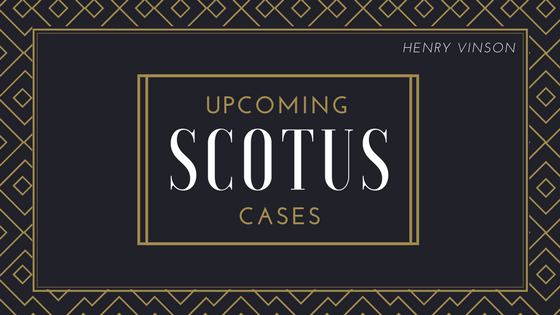Laypeople tend to see laws as being set in stone and incontrovertible – and theoretically, they are. However, our legal system in practice relies on argument and interpretation far more often than you might think. In the span of a few inflected words, the implications of a law under consideration can shift considerably. For that reason, I believe it is tremendously important for lawyers to keep abreast of developments in ongoing Supreme Court cases and consider the legal implications arising therefrom. Below, I’ve outlined an interesting case awaiting argument and review. However, if you are a law enthusiast, student, or practitioner, I highly recommend visiting SCOTUSblog for more details and summaries of other current cases.
Petitioner: Terrence Byrd
Respondent: United States of America
Attorney (Petitioner): E. Joshua Rosenkranz
Attorney (Respondent): Noel J. Francisco
Docket Number: 16-1371
Status: Pending
Details:
Petitioner Terrence Byrd was pulled over in a rental car on a four-lane highway near Harrisburg, PA for driving in a passing-only lane. When the detaining officers requested Byrd’s license and rental agreement, they realized that he was not the renter listed on the formal contract. Upon further research, they further found that there was a warrant out for Byrd’s arrest in New Jersey. Upon learning all of this, the officers attempted to establish communications with the relevant authorities in New Jersey; however, they encountered some difficulty and returned to Byrd’s car to ask further questions. They asked to search the detainee’s car and allegedly (now disputed) obtained Byrd’s permission to do so. Before they conducted the search, the officers noted that they did not have to ask permission, given that Byrd was not on the official contract. After searching, officers found both heroin and body armor in the trunk.
At trial, Byrd attempted to suppress the evidence found during the search by challenging the stop, the questioning, and the search. Both the stop and the question were held up in court; however, because Byrd claims that he never gave permission and was thereby entitled to privacy within the confines of the car, the validity of the search is still in question.
Question at Hand:
If the driver of a rental car has the renter’s permission to drive the vehicle but is not listed as an authorized driver on the formal rental agreement, does he or she have a reasonable expectation of privacy while in the rented vehicle?
